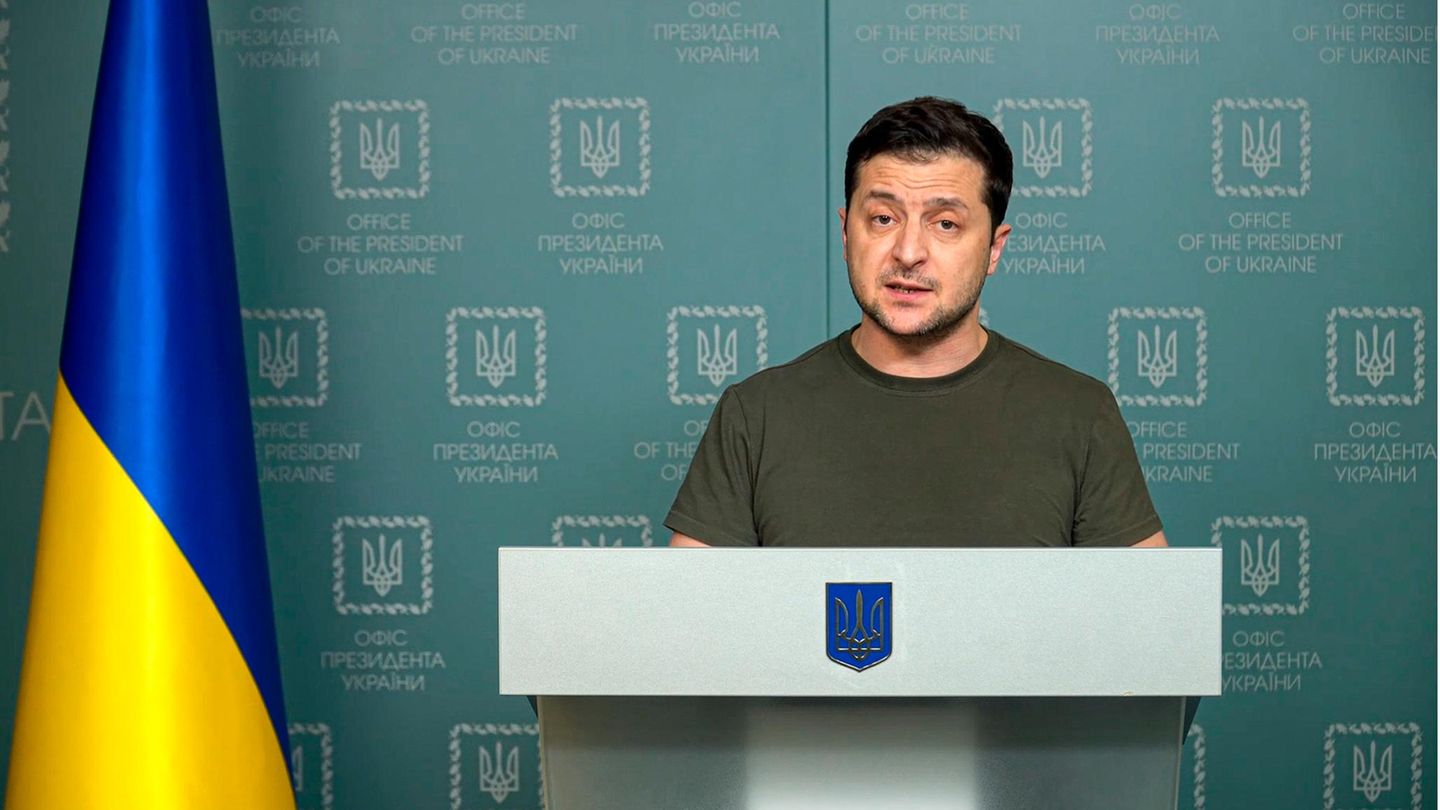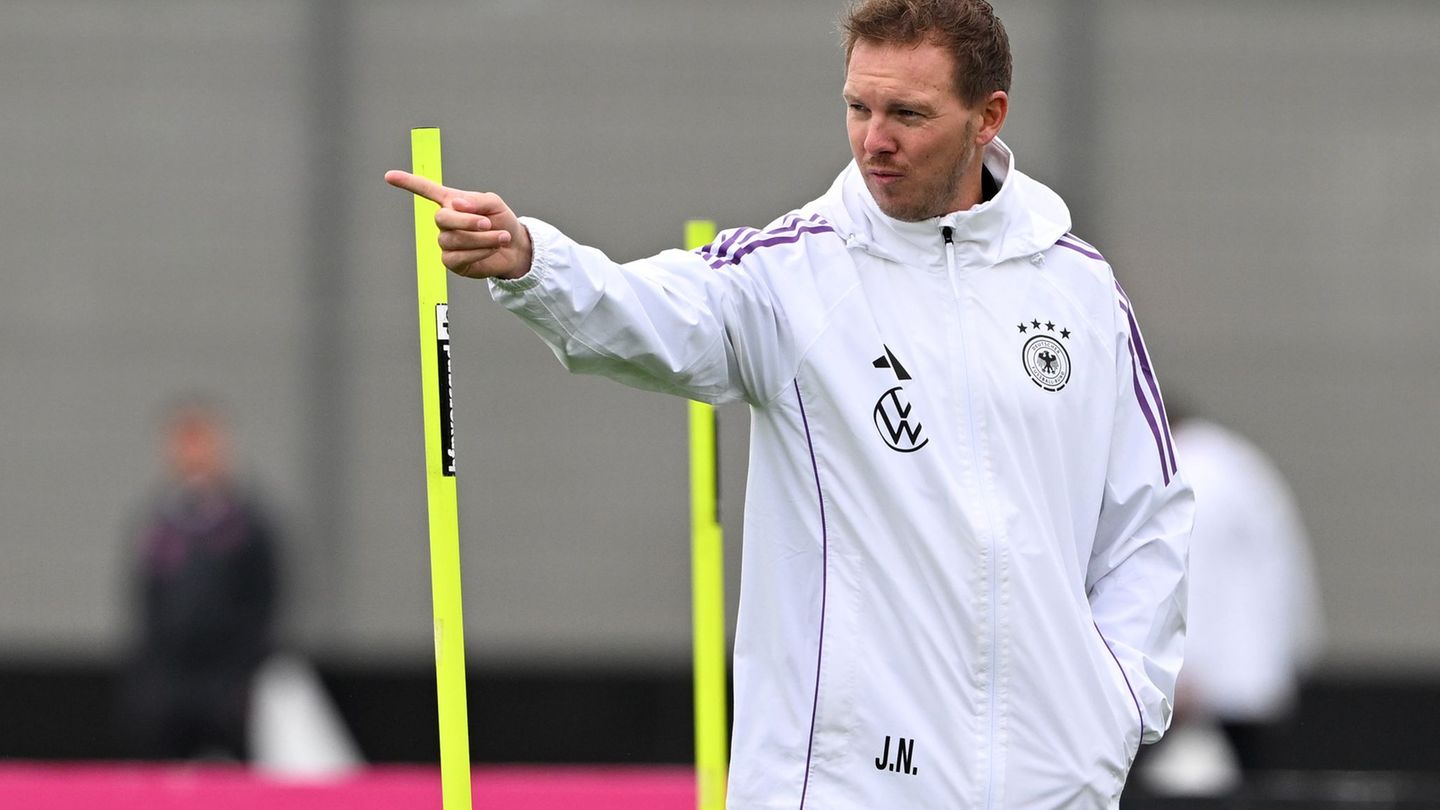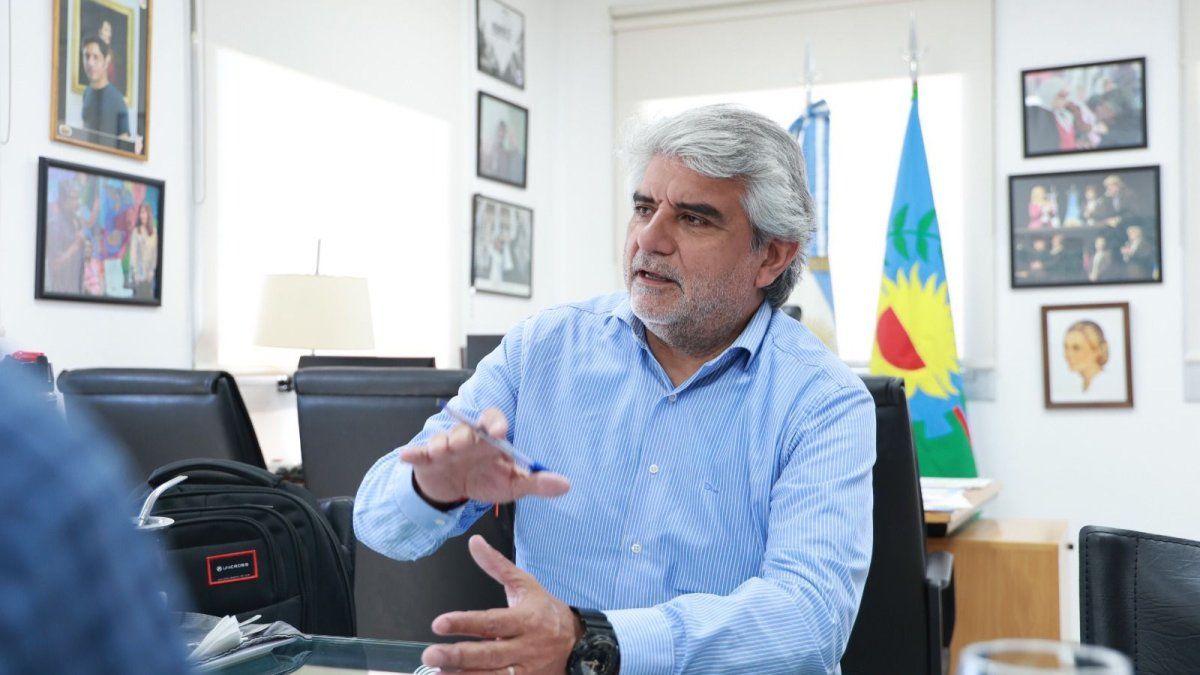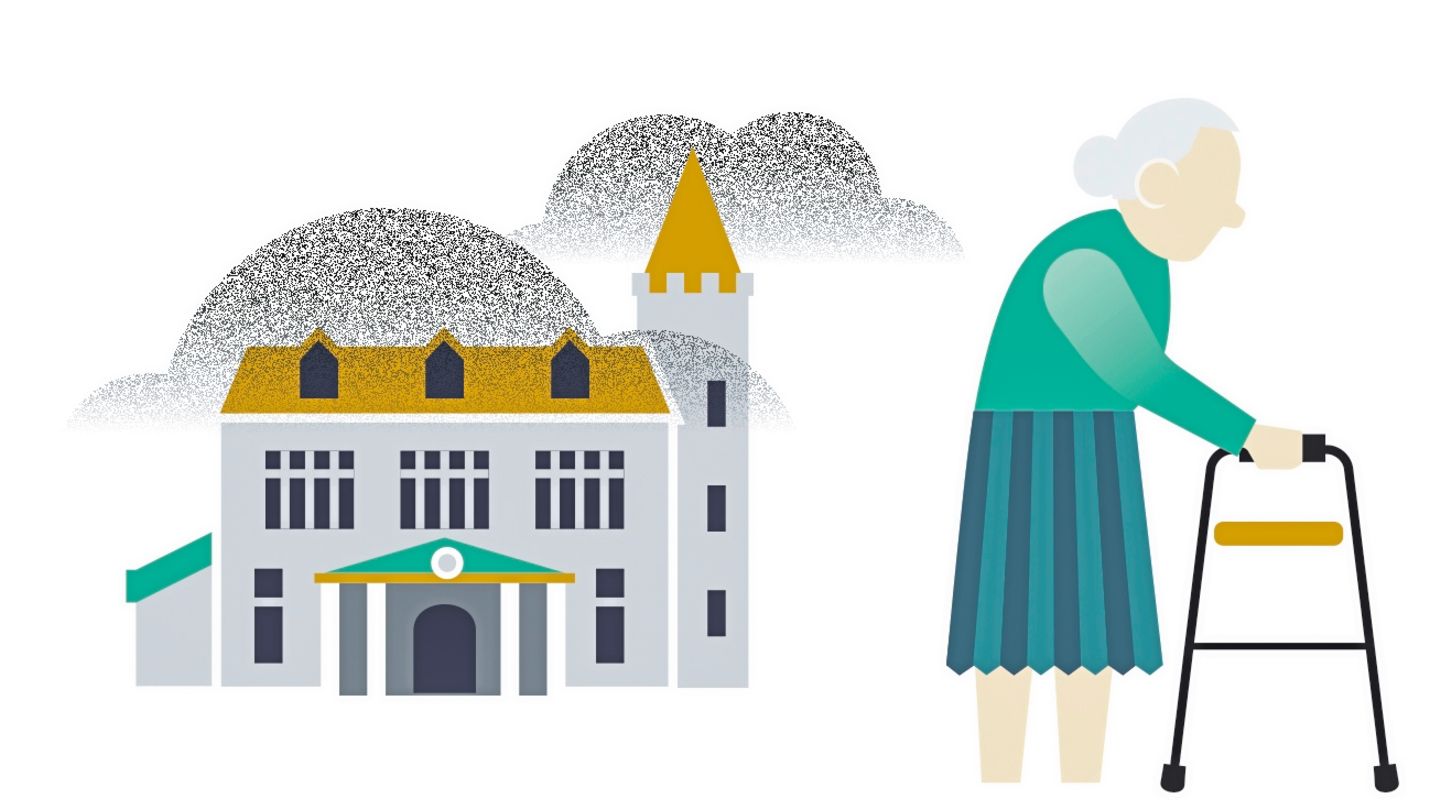Ukraine hints at possible concessions, “war” reaches China, and the US halts Russian oil imports: three events worth exploring.
Day 14, the Russian attacks on Ukraine continue. The events overturn, the thoughts strive after the event (), which knows many nuances but only little time to fully grasp them. Three events could be observed on Tuesday that can be read as (small) U-turns in the chaos of war – and which are worth taking a closer look at:
1. USA stop oil imports: Biden under pressure
While the EU is still arguing about an energy embaro, the US is pushing ahead – and imposing an import ban on Russian oil. “This means that Russian oil will no longer be accepted in US ports and the Americans will deal another serious blow to Putin’s war machine,” .
The message: The US is willing to bear the costs in the fight for freedom. However, Biden is not likely to have thrown this “heavy blow” too enthusiastically.
The import stop was decided by the White House, and only now, after almost two weeks of war. There are several reasons why Biden first had to make this decision.
Although EU countries like Germany are significantly more dependent on Russian energy imports than the US – imports of crude oil and petroleum products from Russia account for just under eight percent of all US imports in this category – US citizens are already bearing the costs to feel the war. Oil and petrol prices are rising, the embargo is likely to result in a further increase.
A hot topic, just before the congressional elections in November, in which the Democrats want to defend their majorities in the Senate and House of Representatives. “Today’s decision is not without cost here at home,” said Biden, but assured: “I will do everything I can to minimize Putin’s price increase here at home.”
Moreover, the US government could not ignore pressure from Congress. Republicans and Democrats to stop the flow of oil from Russia. In this respect, Biden, despite all the skepticism, only forestalled the possibly inevitable – and at least pushed ahead domestically.
2. Ukraine moves away from NATO goal: search for dialogue
Has he given up on his “dream”? At least Ukraine is no longer pushing for NATO membership, according to President Volodymyr Zelenskyy. He had “softened his stance on this issue some time ago” because the defense alliance was apparently not ready “to accept Ukraine,” he said in an interview with US broadcaster ABC broadcast on Monday evening.
Zelenskyj’s party “Servant of the People” (Sluha Narodu) made a similar statement on Tuesday. It is therefore high time to talk about concrete guarantees before NATO is admitted: “The USA, Turkey and the neighboring states of Ukraine could become guarantor states”. In addition, Russia must confirm without a doubt that it recognizes Ukrainian statehood “and guarantees that it will not threaten our state”.
That’s remarkable. On the one hand, because the goal of joining NATO is enshrined in the Ukrainian constitution. On the other hand, since membership is one of the main reasons for the invasion, according to Russia. Kremlin boss Vladimir Putin demands a “neutral” status for Ukraine.
Zelenskyi’s foreign policy adviser, Ihor Chevka, has now signaled that his country can at least be said to be neutral. “Such questions could be discussed in negotiations, that’s quite possible,” he said on Tuesday evening. Provided with one condition: “But such negotiations and a possible settlement can only come about after the hostilities have ceased.”
So Ukraine formulates possible concessions to Moscow, apparently hoping to stop the attacks and promote a diplomatic solution. Recently, the negotiations between the two countries had hardly brought any improvements, Russia continued its war of aggression, although there was talk of it after the talks.
Zelenskyy and his party were also willing to talk about the future status of the separatist areas in Donbass and Russian-occupied Crimea. Zelenskyy said there could be a compromise. It is important for him “how the people in these areas will live and want to be part of Ukraine”. This question is “more complex than just the recognition of these areas”.
However, there is no question of Ukraine recognizing the independence of the regions, as Russia is demanding. “I’m talking about security guarantees,” he said. When it comes to “these temporarily occupied territories,” which are only recognized by Russia, “we can discuss and find a compromise on the future of these territories.”
Shortly before invading Ukraine, Russia recognized the “people’s republics” of Luhansk and Donetsk in eastern Ukraine, which had been proclaimed by pro-Russian rebels. Putin demands that Kyiv also recognize their independence.
The Ukrainian government rejects “ultimatums”, stressed President Zelenskyj. He called on Kremlin boss Putin to start a dialogue “instead of living in a bubble,” he said.
3. China wants to mediate: really this time?
What is Beijing’s position? A reliable answer can hardly be given even on day 14 of the Russian war of aggression. China has long practiced an often rhetorical ambiguity about invasion. Recently, however, an ominous trend has become apparent: China abstained. Statements by the Foreign Minister on Monday about the “rock-solid friendship” with Russia further diminished Western hopes that Beijing could use its influence to mediate the aggressor.
In this respect, President Xi Jinping’s recent statements may be a small ray of hope, although one should not be blinded by this.
Chancellor Olaf Scholz, French President Emmanuel Macron and China’s President Xi Jinping agreed on Tuesday to work closely together to end the war quickly. In a video conference, they agreed to fully support all negotiations aimed at a diplomatic solution to the conflict, as government spokesman Steffen Hebestreit announced in Berlin. According to information from participants, it was the first time that the three heads of state and government met for a video conference.
Beijing had already offered to mediate between Moscow and Kyiv on Monday, but at the same time emphasized “the comprehensive cooperative partnership” with Russia. Head of state Xi Jinping also maintained the ambiguous communication after the meeting with Scholz and Macron. But at least one wording made people sit up and take notice.
“We would like to call for maximum restraint to prevent a major humanitarian crisis,” Xi Jinping said, according to Chinese broadcaster CCTV. He called the situation in Ukraine “deeply worrying”. China is “sad that there is another war on the European continent”.
The Chinese state media are also following a lurching course: there is still no talk of an “invasion” in the reports, . At the beginning of the Russian invasion, the regime took over the . Is China thus distancing itself from Russia, albeit in toddling steps?
This cannot be assumed at this point in time. However, the country also seems to be increasingly concerned about its own economy. “The sanctions in question have an impact on finance, energy, transport and supply chain stability worldwide, pulling down the global economy suffering from the pandemic to the detriment of everyone,” Xi Jinping said, according to Chinese state television.
So far, Beijing has been walking a tightrope in its handling of the Ukraine war: “The country has close economic ties with Russia and Ukraine, and defines territorial integrity and political independence as fundamental guidelines,” said political scientist and Russia expert Gerhard Mangott from the University of Innsbruck to the star. “Argumentally, China is therefore on the defensive and avoiding a clear condemnation of Russia’s violation of its principles.”
Pressure on China would only accelerate the merger with Russia, the expert said. The opposite is required: “The West should ask China to do everything in its power to influence the Russian leadership.” In recent years, China has felt that an “increasingly western front” is forming in many areas. Beijing should therefore not be inclined to mediate if the West takes a confrontational stance.
Macron and Scholz have tried to involve China in the process. They were not able to end the Chinese tightrope walk, but at least they were able to get President Xi Jinping to state again that he wanted to seek a diplomatic solution – and not to side with Russia entirely.
Source: Stern
David William is a talented author who has made a name for himself in the world of writing. He is a professional author who writes on a wide range of topics, from general interest to opinion news. David is currently working as a writer at 24 hours worlds where he brings his unique perspective and in-depth research to his articles, making them both informative and engaging.




